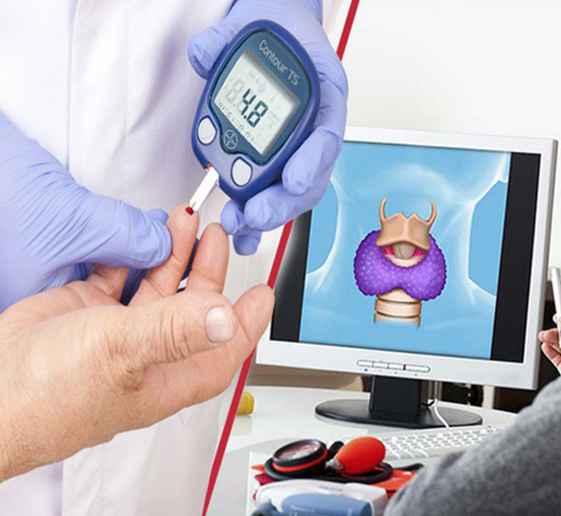
Almas Hospital
Endocrinology & Diabetology
Almas Hospital's Endocrinology & Diabetology Department stands dedicated to providing exceptional care for individuals with hormonal imbalances and diabetes. Their esteemed team comprises seasoned endocrinologists, diabetologists, nurses, and allied health professionals like dietitians and podiatrists. This collaborative approach ensures patients receive in-depth consultations, tailored treatment plans, and ongoing support.
Through comprehensive diagnostic testing, they identify the root cause of hormonal or diabetic conditions. Treatment plans are then meticulously crafted, incorporating medication management, personalized dietary guidance, and potentially insulin therapy.
The department emphasizes patient education, empowering individuals to manage their condition effectively. Advanced technologies and support groups further enhance the patient experience. Ultimately, Almas Hospital's Endocrinology & Diabetology Department goes beyond treatment, striving for long-term management and optimal health outcomes for each patient.
Contact Now
